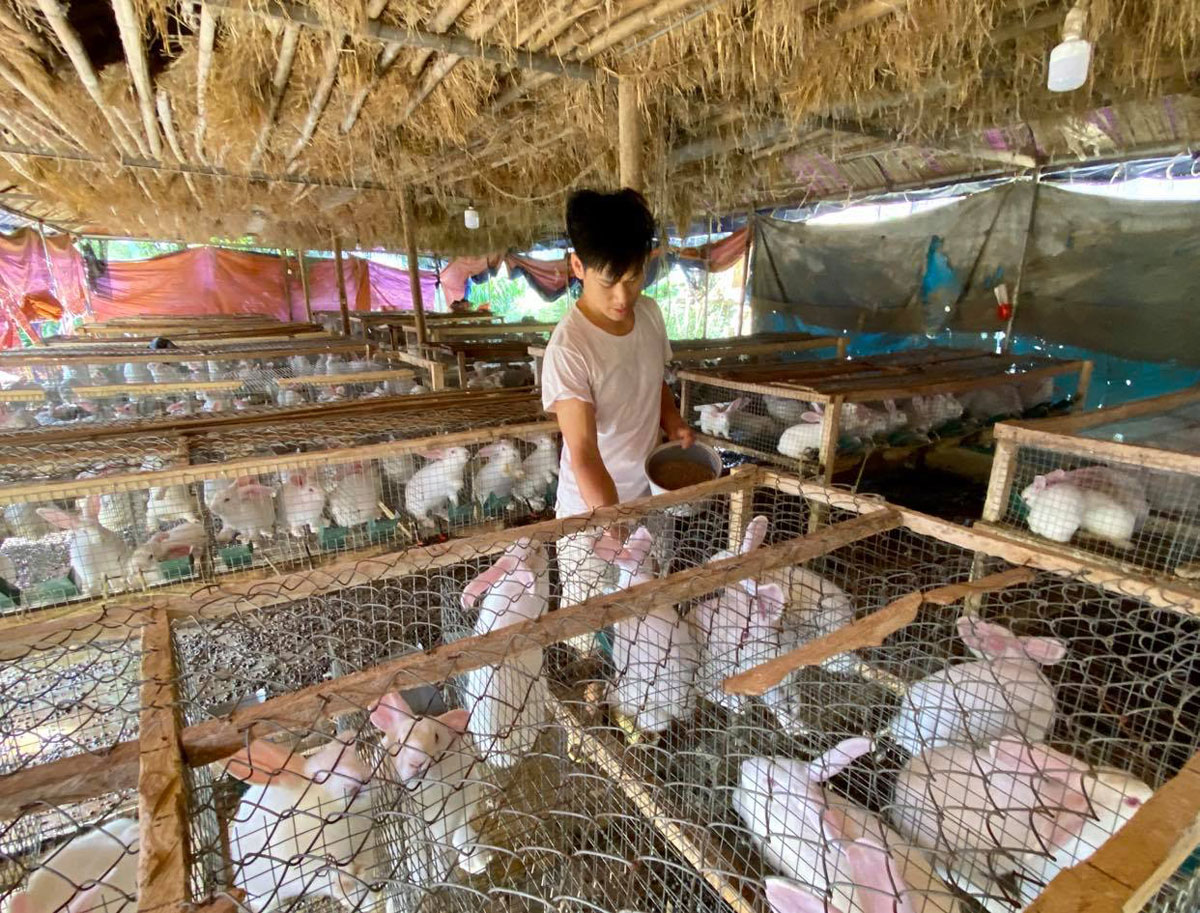


 Thanks to support for improving livelihood, households in Bung hamlet, Tan
Lac district’s Quyet Chien commune, have invested in livestock breeding towards
sustainable poverty reduction.
Thanks to support for improving livelihood, households in Bung hamlet, Tan
Lac district’s Quyet Chien commune, have invested in livestock breeding towards
sustainable poverty reduction.
According to Chairman of the communal People’s Committee Bui Van Ben, Quyet Chien commune has five hamlets with a total population of nearly 1,700, of which the Muong ethnic people account for 98 percent.
In 2018 and earlier, the rate of poor and near-poor households in the commune accounted for nearly 56 percent of its population, including 22.68 percent of the poor households. Quyet Chien is one of the localities benefited from Programme 135 for extremely difficult communes.
From 2019, the commune was selected to be the investor of projects in the framework of the programme, creating conditions for the local authorities and the people to promote democracy, decide the building of projects suitable with the locality’s real situation, contributing to promoting socio-economic development and ensuring the programme’s goals and requirements.
Accordingly, officials of the commune and local people have been also provided training courses, helping improve their ability and experience in organising, managing and operating projects. Apart from establishing and consolidating the Steering Committee for the implementation of Programme 135 at the commune level, assigning specific tasks to members in charge of villages, especially extremely difficult villages, the commune has promoted the popularisation about the programme among communities via meetings with locals, thus collecting public opinions on the implementation of projects.
Communication campaigns also aimed to raise public awareness of the significance and objective of the programme, thus encouraging them to donate their land to the construction of projects.
In the 2019 – 2020 period, the commune received over 1.7 billion VND in support for building infrastructure facilities, including an inter-village road from Bac Hung hamlet to Thung hamlet with a total cost of 370 million VND, facilities worth over 1 billion VND in Quyet Chien commune’s preschools, and a culture house in Bieng hamlet worth 350 million VND. Local residents contributed 90 million VND to the construction of the above-mentioned projects.
One of the priorities of Programme 135 for Quyet Chien commune is supportting production development towards realising the goal of sustainable poverty reduction.
In the 2019-2020 period, residents from poor households were provided with 9.1 tonnes of fertiliser to improve gardens, contributing to increasing agricultural productivity. Disadvantaged households also received breeding cattle worth 244 million VND.
Chairman Ben said the programme has brought positive impact on residents, manifested in important indicators. The income of beneficiaries has increased markedly and their living standard improved in various aspects, contributing to the reduction of the rate of the poor households in the locality.
It is expected that by 2020, the annual per capita income of the commune will reach 30 million VND, an increase of 5 million VND compared to 2019, while the rate of poor households will decrease to less than 22 percent.